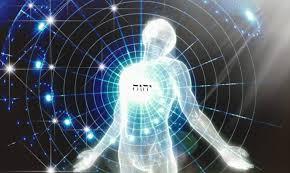Dv – கேளுங்கள், அது உங்களுக்கு வழங்கப்படும்; தேடுங்கள், நீங்கள் கண்டுபிடிப்பீர்கள்; தட்டுங்கள் மற்றும் கதவு உங்களுக்கு திறக்கப்படும் மத்தேயு 7:7-12 மற்றும் லூக்கா 6:31
கேளுங்கள், அது உங்களுக்கு வழங்கப்படும்; தேடுங்கள், நீங்கள் கண்டுபிடிப்பீர்கள்; தட்டுங்கள் மற்றும் கதவு உங்களுக்கு திறக்கப்படும்
மத்தேயு 7:7-12 மற்றும் லூக்கா 6:31
கேளுங்கள், அது உங்களுக்குக் கொடுக்கப்படும்; தேடுங்கள், கண்டடைவீர்கள்; தட்டுங்கள் உங்களுக்கு கதவு திறக்கப்படும் DIG: இந்த வசனங்களில் இயேசு கடவுளைப் பற்றி என்ன வலியுறுத்துகிறார்? அவருடைய சீடர்களை ஊக்குவிக்கும் இந்தப் போதனை எப்படி இருக்கிறது? இங்கே பிரார்த்தனையின் வழிகாட்டும் கொள்கை என்ன? ராஜ்ய நீதியானது பரிசேயர்கள் மற்றும் தோரா போதகர்களின் நீதியிலிருந்து எவ்வாறு வேறுபடுகிறது? கடவுளிடம் எதையாவது கேட்டால் அது கிடைக்கும் என்று இந்த வசனங்கள் கூறுகின்றனவா?
பிரதிபலிப்பு: இது ஏற்கனவே இரட்சிப்பைக் கொண்ட ஒருவரின் நடத்தையா அல்லது அதைப் பெறுவதற்கான வழிமுறையா? நீங்கள் விரும்பும் எதையும் கேட்க இது ஒரு வெற்று காசோலையா, அதை உங்களுக்குக் கொடுக்க கடவுள் கடமைப்பட்டவரா? இந்த போதனையை நீங்கள் புரிந்துகொள்வதற்கான திறவுகோல் என்ன? மற்றவர்கள் உங்களை எப்படி நடத்த வேண்டும் என்று நீங்கள் விரும்புகிறீர்களோ, அப்படி நீங்கள் நடத்துகிறீர்களா? அது எளிதானதா? உங்கள் ஒளிவட்டம் சில நேரங்களில் நழுவுகிறதா? நீங்கள் மற்றவர்களை தவறாக நடத்துவதற்கு என்ன காரணம்? உங்களைத் தூண்டியது எது தெரியுமா? உங்கள் பலவீனத்தை ஈடுசெய்ய ஏதேனும் சூழ்நிலைகளை முன்கூட்டியே எதிர்பார்க்க முடியுமா?
இயேசுவின் பதின்மூன்றாவது எடுத்துக்காட்டில், உண்மையான நீதியின் சாராம்சத்தையும் தோரா எப்படி பாரிச யூத மதத்திலிருந்து வேறுபட்டது என்பதையும் நமது இரட்சகர் சுருக்கமாகக் கூறுகிறார். இந்த வசனங்கள் ஒரு நியாயமான ஆவி பற்றிய எதிர்மறையான போதனைக்கும் தங்க விதியின் நேர்மறையான போதனைக்கும் இடையே ஒரு சரியான பாலத்தை உருவாக்குகின்றன. இறைவனைச் சேர்ந்தவர்களுக்கு இறைவன் அளித்த மிகப் பெரிய மற்றும் விரிவான வாக்குறுதிகளில் ஒன்று இங்கே. இந்த மாபெரும் வாக்குறுதியின் வெளிச்சத்தில் நாம் மற்றவர்களை முழுமையாக நேசிக்கவும், மற்றவர்களுக்காக முற்றிலும் தியாகம் செய்யவும் தயங்கலாம், ஏனென்றால் நம்முடைய பரலோகத் தகப்பன் தம்முடைய தாராள மனப்பான்மையில் நமக்கு முன்மாதிரியாக இருக்கிறார், மேலும் நம்முடைய தேவைகளையும் பூர்த்தி செய்ய அவருடைய நித்திய மற்றும் வரம்பற்ற பொக்கிஷத்தை நாம் அணுகுவோம் என்று உறுதியளிக்கிறார். அவர்களின் என. அவனுடைய வளங்கள் தீர்ந்துபோய் விடுமோ என்ற பயமில்லாமல், எஞ்சியிருப்பவைஅவரது எதுவுமில்லை.588.
 தொழுகை தொடர்பான சில முந்தைய கேள்விகளுக்கு ஏற்கனவே பதிலளித்துவிட்டு (இணைப்பைக் காண Dp – நீங்கள் ஜெபிக்கும்போது, உங்கள் அறைக்குள் சென்று கதவை மூடு), யேசுவா இப்போது ADONAIயின் திட்டத்தைத் தேடுவதற்கான சில முக்கியக் கொள்கைகளை சுருக்கமாகக் கூறுகிறார். கர்த்தருடைய சித்தத்தைக் கண்டுபிடிப்பதில் ஜெபமும் ஒரு முக்கிய அங்கம் என்பதை இந்த வசனங்கள் நமக்கு நினைவூட்டுகின்றன. பதில் ஜெபம் பெரும்பாலும் எளிதாகவோ அல்லது விரைவாகவோ வருவதில்லை. பெரும்பாலும் இது தந்தையைத் தேடும் நீண்ட செயல்முறையின் விளைவாகும். ஆகவே, பரிசுத்த ஆவியானவர் மனித ஆசிரியரான மத்தேயுவை எங்களுக்கு எழுதும்படி தூண்டினார்: கேளுங்கள், கடவுள் உங்களுக்குத் தருவார். தேடினால் கிடைக்கும். தட்டுங்கள், உங்களுக்கு கதவு திறக்கும் (மத்தேயு 7:7 NCV). நாம் விடாமுயற்சியுடன் இருக்க வேண்டும் என்பது, கேட்கவும், தேடவும்,மற்றும் தட்டவும் என்ற தற்போதைய கட்டாயக் காலங்களால் பார்க்கப்படுகிறது. விடாமுயற்சி என்பது இறைவன் கருத்து. “கேட்டுக் கொண்டே இரு; தேடிக்கொண்டே இருங்கள்; தட்டிக் கொண்டே இருங்கள்.” மூன்று வினைச்சொற்களில் தீவிரத்தின் முன்னேற்றத்தையும் நாங்கள் காண்கிறோம், வெறுமனே கேட்பது முதல் செயலில் தேடுவது வரை மிகவும் ஆக்ரோஷமாக தட்டுவது வரை. இன்னும் இந்த கருத்துக்கள் எதுவும் தெளிவற்றதாக இல்லை. கேட்கவும், தேடவும், மற்றும் தட்டவும் இளைய குழந்தைக்குத் தெரியும்.
தொழுகை தொடர்பான சில முந்தைய கேள்விகளுக்கு ஏற்கனவே பதிலளித்துவிட்டு (இணைப்பைக் காண Dp – நீங்கள் ஜெபிக்கும்போது, உங்கள் அறைக்குள் சென்று கதவை மூடு), யேசுவா இப்போது ADONAIயின் திட்டத்தைத் தேடுவதற்கான சில முக்கியக் கொள்கைகளை சுருக்கமாகக் கூறுகிறார். கர்த்தருடைய சித்தத்தைக் கண்டுபிடிப்பதில் ஜெபமும் ஒரு முக்கிய அங்கம் என்பதை இந்த வசனங்கள் நமக்கு நினைவூட்டுகின்றன. பதில் ஜெபம் பெரும்பாலும் எளிதாகவோ அல்லது விரைவாகவோ வருவதில்லை. பெரும்பாலும் இது தந்தையைத் தேடும் நீண்ட செயல்முறையின் விளைவாகும். ஆகவே, பரிசுத்த ஆவியானவர் மனித ஆசிரியரான மத்தேயுவை எங்களுக்கு எழுதும்படி தூண்டினார்: கேளுங்கள், கடவுள் உங்களுக்குத் தருவார். தேடினால் கிடைக்கும். தட்டுங்கள், உங்களுக்கு கதவு திறக்கும் (மத்தேயு 7:7 NCV). நாம் விடாமுயற்சியுடன் இருக்க வேண்டும் என்பது, கேட்கவும், தேடவும்,மற்றும் தட்டவும் என்ற தற்போதைய கட்டாயக் காலங்களால் பார்க்கப்படுகிறது. விடாமுயற்சி என்பது இறைவன் கருத்து. “கேட்டுக் கொண்டே இரு; தேடிக்கொண்டே இருங்கள்; தட்டிக் கொண்டே இருங்கள்.” மூன்று வினைச்சொற்களில் தீவிரத்தின் முன்னேற்றத்தையும் நாங்கள் காண்கிறோம், வெறுமனே கேட்பது முதல் செயலில் தேடுவது வரை மிகவும் ஆக்ரோஷமாக தட்டுவது வரை. இன்னும் இந்த கருத்துக்கள் எதுவும் தெளிவற்றதாக இல்லை. கேட்கவும், தேடவும், மற்றும் தட்டவும் இளைய குழந்தைக்குத் தெரியும்.
கேட்கும் அனைவருக்கும் கிடைக்கும். சில பிரபலமான விளக்கங்களுக்கு மாறாக, இந்த வசனம் ஒரு வெற்று சரிபார்ப்பு அல்ல. முதலாவதாக, அனைவரும் பரலோகத் தகப்பனுடைய விசுவாசிகளைக் குறிப்பிடுகிறார்கள் (கலாத்தியர் 6:10; எபேசியர் 2:19). கடவுளின் பிள்ளைகள் அல்லாதவர்கள் அவரிடம் தந்தையாக வர முடியாது. இரண்டாவதாக, இந்த வாக்குறுதியைக் கோருபவர்கள் தங்கள் தந்தைக்குக் கீழ்ப்படிந்து வாழ வேண்டும். நாம் கேட்பதைக் கடவுள் நமக்குத் தருகிறார், ஏனென்றால் நாம் அவருடைய கட்டளைகளுக்குக் கீழ்ப்படிந்து அவருக்குப் பிரியமானதைச் செய்கிறோம் (முதல் யோவான் 3:22 NCV).மூன்றாவதாக, நாம் கேட்கும் நோக்கம் சரியாக இருக்க வேண்டும். நீங்கள் கேட்கும் போது, நீங்கள் பெறவில்லை என்று ஜேம்ஸ் விளக்குகிறார், ஏனென்றால் நீங்கள் கேட்கும் காரணம் தவறு. நீங்கள் விஷயங்களை விரும்புகிறீர்கள், எனவே அவற்றை உங்கள் சுயநலத்திற்காகப் பயன்படுத்தலாம் (ஜேம்ஸ் 4:3 NCV). இறுதியாக, நாம் அவருடைய சித்தத்திற்கு அடிபணிய வேண்டும். நாம் கடவுளுக்கும் பணத்திற்கும் சேவை செய்ய முயற்சித்தால் (மத்தேயு 6:24b), இந்த வாக்குறுதியை நாம் கோர முடியாது. அந்த நபர் இறைவனிடமிருந்து எதையும் பெற வேண்டும் என்று எதிர்பார்க்கக்கூடாது. அத்தகைய நபர் இருமனம் கொண்டவர் மற்றும் அவர்கள் செய்யும் எல்லாவற்றிலும் நிலையற்றவர் (யாக்கோபு 1:7-8). ஜான் தெளிவுபடுத்துவது போல்:கடவுளை அணுகுவதில் நமக்கு இருக்கும் நம்பிக்கை இதுதான்: அவருடைய சித்தத்தின்படி நாம் எதையும் கேட்டால், அவர் நமக்குச் செவிசாய்ப்பார் (முதல் யோவான் 5:14). ADONAI நம் பிரார்த்தனைகளுக்கு வேறு எந்த அடிப்படையிலும் பதிலளிப்பார் என்று நம்புவது தற்பெருமை மற்றும் முட்டாள்தனம்.589
தேடுபவர் கண்டடைகிறார்; தட்டுகிறவனுக்கு கதவு திறக்கப்படும் (மத்தேயு 7:8). தீவிரத்தின் முன்னேற்றம், நமது நேர்மையான பிரார்த்தனைகள் செயலற்றதாக இருக்கக்கூடாது என்பதையும் அறிவுறுத்துகிறது. வேலை கேட்டால், படுக்கையறையில் உட்கார்ந்து கதவைத் தட்டக் காத்திருக்கக்கூடாது. அவருடைய வழிகாட்டுதல் மற்றும் ஏற்பாட்டிற்காக காத்திருக்கும் போது நாம் வேலை தேடி வெளியே இருக்க வேண்டும். நமக்கு உணவு இல்லை என்றால், நம்மால் முடிந்தால் அதை வாங்குவதற்கு பணம் சம்பாதிக்க முயற்சிக்க வேண்டும். அவர் ஏற்கனவே நமக்குக் கொடுத்ததைப் பயன்படுத்த நாம் தயாராக இல்லாதபோது, மேலும் வழங்குமாறு ADONAI ஐக் கேட்பது நம்பிக்கை அல்ல, ஆனால் அனுமானம். ஆனால், விசுவாசிகள் தொடர்ந்து ஜெபிக்கும்போது, பதில்கள் வழங்கப்படும் மற்றும் கதவுகள் திறக்கப்படும். பிதா நம்முடைய ஜெபங்களுக்குப் பதிலளிப்பதாக வாக்களிக்கிறார், ஆனால் அவருடைய பதில் நாம் எதிர்பார்த்தபடி இருக்காது. அவரது பதில் சில நேரங்களில் “ஆம்”, மற்ற நேரங்களில் “இல்லை” மற்றும் சில சமயங்களில் “காத்திருங்கள்”. ஆனால், உறுதியாக இருங்கள், கடவுளின் பதில் அவருடைய சரியான நேரத்தில் வரும்.
இங்கே மேசியாவின் வாக்குறுதியைக் கேள்வி கேட்பவர்களுக்கு, இந்த உண்மையை உறுதிப்படுத்த அவர் ஒரு சிறிய உவமையைக் கூறுகிறார். உங்களில் யார், உங்கள் மகன் ரொட்டி கேட்டால், அவனுக்கு கல்லைக் கொடுப்பான்? அல்லது மீனைக் கேட்டால் பாம்பைக் கொடுப்பாரா (மத்தேயு 7:9-10)? ஒரு மீன் செல்லுபடியாகும் கோஷர் உணவு, அதேசமயம் ஒரு பாம்பு (அல்லது கலிலி கடலில் இருந்து ஒரு ஈல்) தெளிவாக இல்லை. ஒரு அன்பான யூத தகப்பன் தன் மகனை சம்பிரதாய ரீதியில் அசுத்தமான உணவை உண்ணும்படி ஏமாற்றி, கடவுளுடைய வார்த்தையை அவமதிப்பதற்காக அவனை ஒருபோதும் ஏமாற்றி தீட்டுப்படுத்த மாட்டார். எனவே, தெளிவான பதில் என்னவென்றால், எந்த அன்பான தந்தையும் தனது மகனின் உடல் அல்லது ஆன்மீக தேவைகளை புறக்கணிக்க மாட்டார்.
நீங்கள் தீயவராக இருந்தாலும் (மத்தேயு 7:11a)! கிரேக்க மொழியில், பொனபோய் ‘ஒன்டெஸ், அல்லது தீயவராக இருப்பது. மனிதகுலத்தின் வீழ்ந்த, தீய அல்லது பாவ இயல்பு பற்றிய பல குறிப்பிட்ட வேதப் போதனைகளில் ஒன்று இங்கே உள்ளது; தீமையும் மற்றும் பாவமும் இங்கு ஒத்ததாக உள்ளன. யேசுவா குறிப்பாக கொடூரமான மற்றும் பொல்லாத குறிப்பிட்ட அப்பாக்களைப் பற்றி பேசவில்லை, ஆனால் பொதுவாக மனித தகப்பன்கள், இயல்பிலேயே பாவம் செய்யும் அனைவரும். இது மொத்த சீரழிவின் கோட்பாடு என்று அழைக்கப்படுகிறது, அதாவது பாவி தனது பாவ நிலையில் இருந்து தன்னை முழுமையாக விடுவிக்க முடியாது.இந்தப் பாவத்தின் இறுதியான நோய் ஆதாமிடமிருந்து நமக்குக் கடத்தப்பட்டது (ஆதியாகமம் Ba பற்றிய எனது விளக்கத்தைப் பார்க்கவும் – பெண் பழத்தைப் பார்த்தாள் மற்றும் அதை சாப்பிட்டாள்), மேலும் புதிய உடன்படிக்கையில், ரபி ஷால் பாவம் ஒன்றின் மூலம் உலகில் நுழைந்ததாக நமக்குக் கற்பிக்கிறார். மனிதன், ஆதாம் (ரோமர் 5:12a). நாம் பாவமில்லாமல் பிறந்தோம் என்று உலகம் போதிக்கிறது, நாம் பாவமாக மாறுவதற்கு கடுமையான ஒன்று நடக்க வேண்டும்; ஆனால், கடவுளுடைய வார்த்தை கூறுகிறது நாம் அனைவரும் பிறக்கும்போதே பாவமுள்ளவர்களாக இருந்தோம் (சங்கீதம் 51:5), நாம் கிறிஸ்துவில் ஒரு புதிய படைப்பாக மாறுவதற்கு (இரண்டாம் கொரிந்தியர் 5:17), கடுமையான ஒன்று நடக்க வேண்டும். நம்முடைய பாவ நிலையின் நம்பிக்கையற்ற தன்மையை நாம் உணர்ந்து, சரணடைந்து, நம் வாழ்க்கையைக் கட்டுப்படுத்த யேசுவா ஹாமேஷியாக்கைக் கேட்க வேண்டும், நம் இதயத்தின் சிம்மாசனத்தில் அமர்ந்து நம் வாழ்வின் ஆண்டவராக மாற வேண்டும்.
நீங்கள் பொல்லாதவர்களாக இருந்தாலும் – பாவமுள்ள மனித தகப்பன்களைப் போல – உங்கள் பிள்ளைகளுக்கு எப்படி நல்ல பரிசுகளை வழங்குவது என்பதை அறிந்திருந்தாலும், பரலோகத்திலுள்ள உங்கள் பிதா தம்மிடம் கேட்பவர்களுக்கு எவ்வளவு அதிகமாக நல்ல வரங்களைக் கொடுப்பார் (மத்தேயு 7:11)! மனிதர்களிடையே மிகவும் இயற்கையான தன்னலமற்ற உறவு பெற்றோர்கள் தங்கள் குழந்தைகளுடன் இருப்பது. மற்றவர்களை விட, நம் குழந்தைகளுக்காக, நம் உயிரைக் கொடுக்கும் அளவிற்கு கூட நாம் தியாகம் செய்வோம். இருப்பினும், மிகப்பெரிய மனித பெற்றோரின் அன்பை கடவுளின் அன்போடு இங்கே,ஒப்பிட முடியாது.இங்கே, கிறிஸ்து முதலில் ரபி ஹில்லெல் (10AD) மூலம் ஏழு கொள்கைகளில் விளக்கப்பட்ட ரப்பினிக் கொள்கையின் விளக்கத்தைப் பயன்படுத்துகிறார். இந்த கோட்பாடுகள் மேசியாவின் வாழ்நாளில் பயன்படுத்தப்பட்டதால், அவருடைய வார்த்தைகளை புரிந்துகொள்வது பொருத்தமானது. இங்கே, அவர் வெளிப்படுத்திய விருப்பத்தை விளக்குவதற்கு மிடாட் (ஹீப்ரு: நமது குணாதிசயங்களின் விதிமுறைகள்) கொள்கைகளில் ஒன்றைப் பயன்படுத்துகிறார்: ஒரு பூமிக்குரிய தந்தை தனது குழந்தைகளுக்கு நல்ல பரிசுகளை வழங்கினால், ADONAI தனது ஆன்மீக குழந்தைகளுக்கு எவ்வளவு அதிகமாக வழங்குவார்.
அடுத்தது மலைப்பிரசங்கத்தின் சிறந்த சுருக்க அறிக்கைகளில் ஒன்றாகக் கருதப்படலாம். ஒரு பிரபலமான டால்முடிக் கதையில், ரப்பி ஹில்லெல் ஒரு புறஜாதியால் ஒரு நாள் ஒரு காலில் நிற்கும் போது தோரா அனைத்தையும் சுருக்கமாகக் கேட்டார். அவர் ஒரு விரைவான பதிலை விரும்பினார்! ஹில்லெல் பதிலளிப்பதாகக் கூறப்படுகிறது, “உனக்கு வெறுக்கத்தக்கது, உன் அண்டை வீட்டாருக்குச் செய்யாதே. இதுவே முழு தோரா” (டிராக்டேட் சன்ஹெட்ரின் 31a). எனவே எதிர்மறையான வார்த்தைகளில் ஹில்லெல் விளக்கியதை, யேசுவா பொதுவாக பொற்கால விதி என்று அழைக்கப்படுவதை நேர்மறையான வார்த்தைகளில் விவரித்தார்: மற்றவர்கள் உங்களை எப்படி நடத்த வேண்டும் என்று நீங்கள் விரும்புகிறீர்களோ, அதுவே தோராவின் அர்த்தமும் தீர்க்கதரிசிகளின் போதனையும் (மத்தேயு 7:12) லூக்கா 6:31 NCV). நாம் மற்றவர்களை எப்படி நடத்துகிறோம் என்பது அவர்கள் நம்மை எப்படி நடத்த வேண்டும் என்று நாம் எதிர்பார்க்கிறோம் அல்லது அவர்கள் நம்மை எப்படி நடத்த வேண்டும் என்று நாம் நினைக்கிறோம் என்பதன் மூலம் தீர்மானிக்கப்படுவதில்லை, ஆனால் அவர்கள் நம்மை எப்படி நடத்த வேண்டும் என்று நாம் விரும்புகிறோம்.
பல ஆண்டுகளாக அடிப்படை இசைக்கருவி ஹார்ப்சிகார்ட் ஆகும். அதன் விசைகள் அழுத்தப்பட்டிருப்பதால், கொடுக்கப்பட்ட சரம் பிடுங்கப்பட்டு விரும்பிய குறிப்பை உருவாக்குகிறது. ஆனால், அந்த வழியில் செய்யப்பட்ட தொனி தூய்மையானது அல்ல, மேலும் பொறிமுறையானது ஒப்பீட்டளவில் மெதுவாகவும் கட்டுப்படுத்துவதாகவும் உள்ளது. பதினெட்டாம் நூற்றாண்டின் கடைசி காலாண்டில், பீத்தோவனின் வாழ்நாளில், ஒரு அறியப்படாத இசைக்கலைஞர் ஹார்ப்சிகார்டை மாற்றியமைத்தார், இதனால் விசைகள் சரங்களை பறிப்பதற்கு பதிலாக தாக்கும் சிறிய சுத்தியல்களை செயல்படுத்தின. அந்த சிறிய மாற்றத்துடன், ஒரு பெரிய முன்னேற்றம் செய்யப்பட்டது, அது பியானோவுக்கு வழிவகுக்கும் மற்றும் முழு இசை உலகத்தையும் தீவிரமாக மேம்படுத்தும். அது எங்களுக்கு முன்னெப்போதும் இல்லாத ஒரு பிரம்மாண்டத்தையும் அகலத்தையும் கொடுத்தது.
பொற்கால ஆட்சியில் இயேசு தரும் புரட்சிகரமான மாற்றம் இதுதான். இந்த அடிப்படைக் கோட்பாட்டின் மற்ற எல்லா வடிவங்களும் மற்ற எல்லா மதங்களாலும், தத்துவங்களாலும் முற்றிலும் எதிர்மறையான சொற்களில் கொடுக்கப்பட்டுள்ளன, ஏனென்றால் அது பாவம் நிறைந்த மனிதகுலம் செல்லக்கூடிய அளவிற்கு இருந்தது. அவை சுயநலத்தின் வெளிப்பாடுகள், அன்பல்ல. உந்துதல் மற்றவர்களுக்கு தீங்கு விளைவிப்பதிலிருந்து நம்மைத் தடுக்கிறது, அதனால் அவர்கள் நமக்கு தீங்கு செய்ய மாட்டார்கள். விதியின் அந்த எதிர்மறை வடிவங்கள் பொன்னானவை அல்ல, ஏனென்றால் அவை முதன்மையாக பயம் மற்றும் சுய-பாதுகாப்பு ஆகியவற்றால் தூண்டப்படுகின்றன. மனிதகுலத்தின் பாவம், விழுந்துபோன, மனித இயல்பை பைபிள் தொடர்ந்து நமக்கு நினைவூட்டுவது போல: நன்மை செய்பவர் எவருமில்லை, ஒருவர் கூட இல்லை; நாம் ஒவ்வொருவரும் நம் சொந்த வழியில் திரும்பினோம் (ரோமர் 3:12; ஏசாயா 53:6). நேர்மறை மற்றும் எதிர்மறை இரண்டையும் உள்ளடக்கிய சத்தியத்தின் முழுமையை மேசியா மட்டுமே நமக்குத் தருகிறார். மேலும் அந்த முழு சத்தியத்தின்படி வாழ்வதற்கான சக்தியை பரிசுத்த ஆவியானவரால் மட்டுமே கொடுக்க முடியும்.590
இது தோராவின் கொள்கையை சுருக்கமாகக் கூறுகிறது: உங்களைப் போலவே உங்கள் அண்டை வீட்டாரையும் நேசிக்க வேண்டும், இது மத்தேயு 22: 34-40 இல் இரண்டாவது பெரிய கட்டளையாக இயேசு அடையாளம் காட்டுகிறார். ஒரு போதனையின் பொதுவான சுருக்கத்தை வழங்கும் நுட்பம், ரபீக்கள் கிளால் அல்லது பொதுக் கொள்கை என்று அழைப்பதற்கு நெருக்கமாக இணைகிறது. மோஷேயின் அனைத்து 613 கட்டளைகளையும் அன்பின் கொள்கையால் சுருக்கமாகக் கூற முடியும் என்பதில் சந்தேகமில்லை. யேசுவா ஹா’மேஷியாக்கை நம்புபவர்களுக்கு, யூதர் மற்றும் புறஜாதி இருபாலரும், இது எங்கள் எளிய, ஆனால் அடிப்படை, முன்னுரிமை.591
தந்தையே, நாங்கள் உங்களை, உங்கள் வாழ்க்கையை, உங்கள் அன்பை அறிந்து கொள்ள வேண்டும் என்ற உங்களின் விருப்பத்தை எங்களுக்கு உறுதிப்படுத்துங்கள். எங்கள் பிரார்த்தனைகளுக்கு பதில்களை எதிர்பார்க்கவும், உமது பரிபூரண சித்தத்திற்கு எங்கள் விருப்பங்களை சமர்ப்பிக்கவும் எங்களுக்கு உதவுங்கள்.592










 எருசலேமின் பாரசீக யூத மதத்தினரால் அவர் பிரகடனப்படுத்தப்பட்ட சத்தியங்களை அவர் எதிர்பார்க்கவில்லை என்பதை கிறிஸ்துவின் மோசமான எச்சரிக்கை சுட்டிக்காட்டியது.
எருசலேமின் பாரசீக யூத மதத்தினரால் அவர் பிரகடனப்படுத்தப்பட்ட சத்தியங்களை அவர் எதிர்பார்க்கவில்லை என்பதை கிறிஸ்துவின் மோசமான எச்சரிக்கை சுட்டிக்காட்டியது. 







 பரிசேயர்கள் அவருடைய செய்தியை நிராகரித்த போதிலும், சிலர் அதைப் பெறுவார்கள் என்று கிறிஸ்து எதிர்பார்த்தார். எனவே, ராஜ்யத்தில் பிரவேசிக்க விரும்புவோருக்கு அறிவுறுத்துவதற்காக இயேசு தம்முடைய மலைப்பிரசங்கத்தில் திரும்பினார். உண்மையான நீதியின் செய்ய வேண்டியவை மற்றும் செய்யக்கூடாதவை பற்றிய பல எச்சரிக்கைகளை அவர் முடித்தார்.
பரிசேயர்கள் அவருடைய செய்தியை நிராகரித்த போதிலும், சிலர் அதைப் பெறுவார்கள் என்று கிறிஸ்து எதிர்பார்த்தார். எனவே, ராஜ்யத்தில் பிரவேசிக்க விரும்புவோருக்கு அறிவுறுத்துவதற்காக இயேசு தம்முடைய மலைப்பிரசங்கத்தில் திரும்பினார். உண்மையான நீதியின் செய்ய வேண்டியவை மற்றும் செய்யக்கூடாதவை பற்றிய பல எச்சரிக்கைகளை அவர் முடித்தார்.
